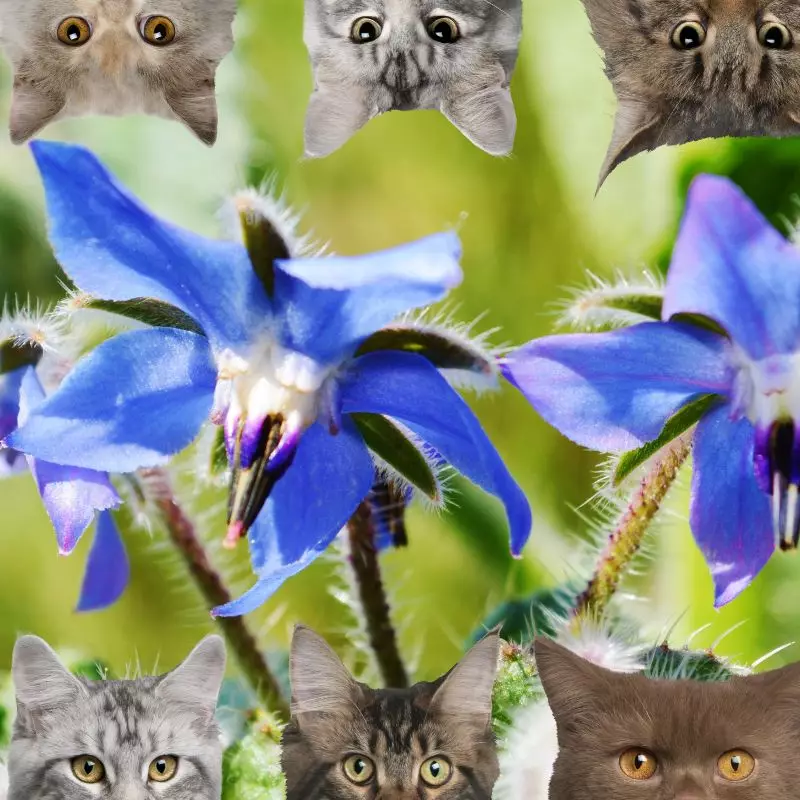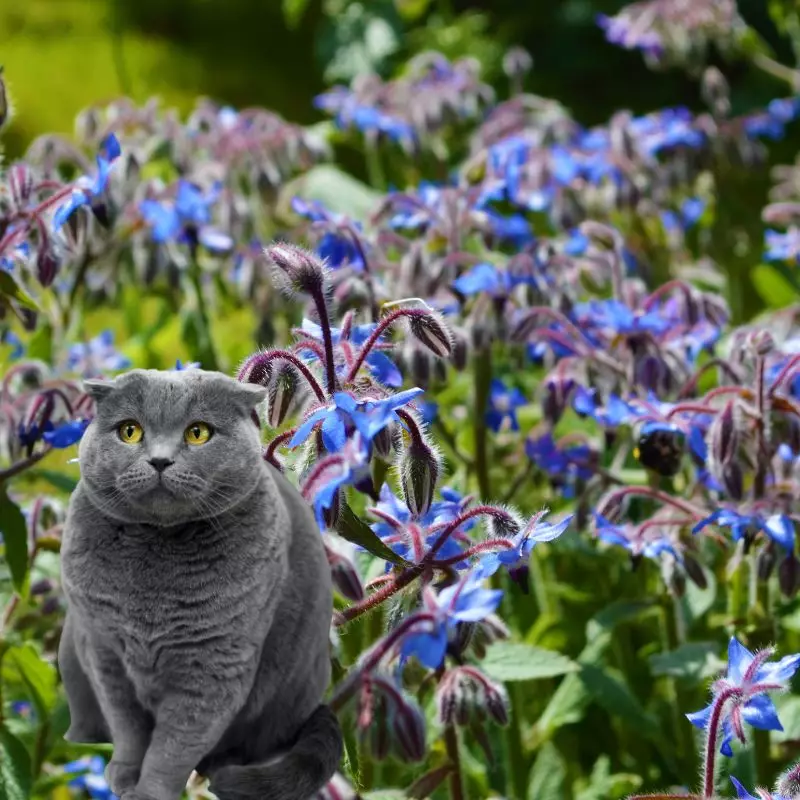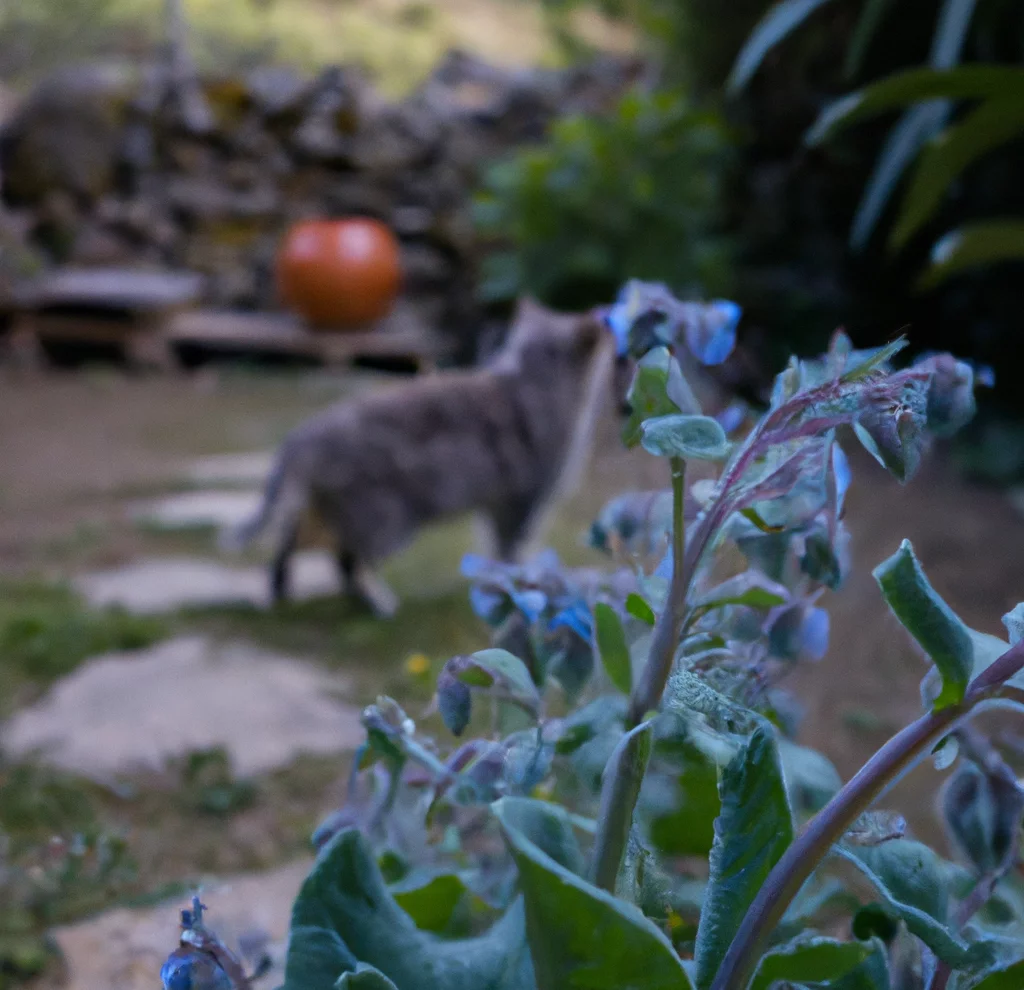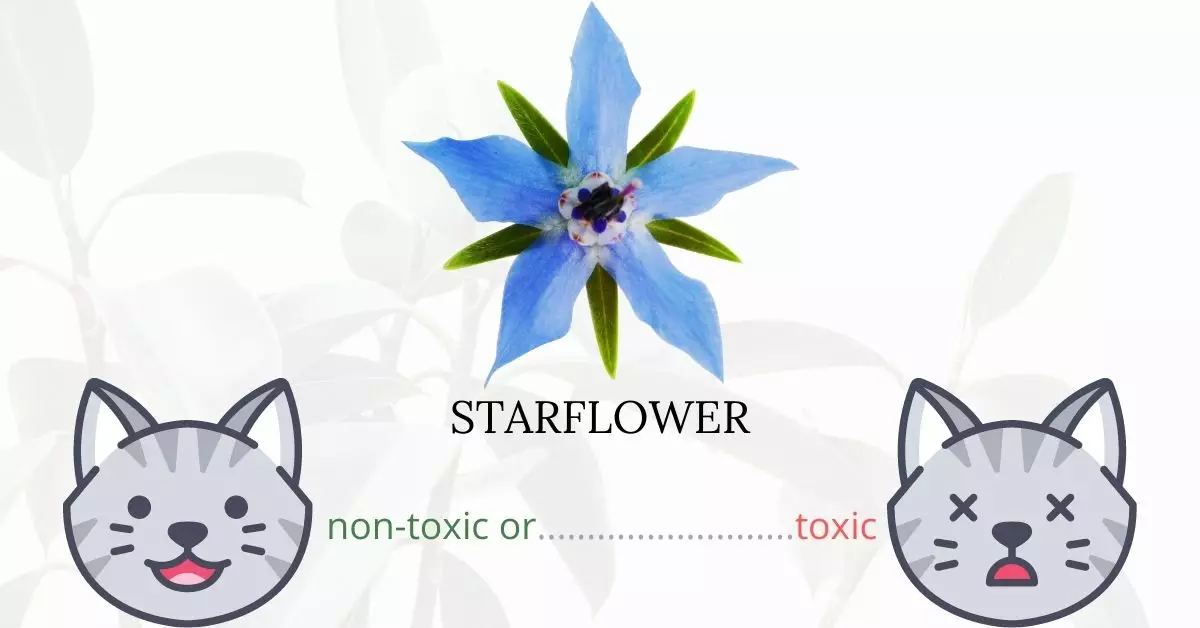Borage, commonly referred to as starflower, is potentially harmful to cats. It’s essential for cat owners to be aware of the risks associated with various plants, and in the case of Borage, ingestion could lead to adverse reactions in felines.
This article has been crafted in collaboration with a team of experienced DVMs (doctors of veterinary medicine). Through their insights, coupled with thorough research from high-authority websites like ASPCA and PetMD, we ensure that the information provided here is both accurate and up-to-date.
The borage plant contains compounds such as tannins and mucilage which are of concern for cats. Tannins, found in many plants, serve as a defense mechanism against bacteria and fungi. Meanwhile, mucilage is a gel-like sugar produced in the roots and seeds of some plants and is often used in adhesive products. Cats that consume borage may exhibit symptoms like vomiting, diarrhea, and dermatitis. If you suspect your cat has ingested any part of the borage or starflower plant, it is imperative to seek veterinary attention immediately.
Clinical Signs of Borage or Starflower Poisoning in Cats

When a cat comes into contact with, smells, or ingests the Borage plant, certain clinical signs might arise due to the plant’s compounds. Recognizing these signs early and understanding their origins can be pivotal for timely intervention. Here are the signs associated with Borage or Starflower poisoning and their explanations:
- Vomiting: This is a common response when a cat ingests a foreign or toxic substance. The body’s natural reaction is to expel the offending substance, which is why vomiting occurs after ingestion of Borage.
- Diarrhea: The compounds in Borage, especially tannins, can irritate the cat’s gastrointestinal tract. This irritation results in diarrhea as the body tries to rapidly eliminate the toxins.
- Fever: The cat’s body might raise its temperature as a defense mechanism against perceived threats. When harmful compounds from Borage are ingested, the immune response can trigger a fever.
- Itching: Contact with the Borage plant may lead to dermatitis in cats. This skin irritation can cause noticeable itching and discomfort. It’s believed that mucilage, a compound found in Borage, can be a contributing factor.
- Depression symptoms: Cats may exhibit lethargy or decreased activity levels as a result of feeling unwell after Borage exposure. The body might be diverting energy to cope with the ingested toxins, leading to a decrease in the cat’s overall activity.
- Appetite loss: The gastrointestinal upset caused by Borage can lead to a diminished desire to eat. A cat’s body might avoid food to prevent further ingestion of any toxic substances.
If you notice any of these signs in your cat after potential contact with Borage or Starflower, it is essential to seek veterinary care immediately.
First Aid and Treatment of Borage or Starflower Poisoning in Cats

The veterinarian will treat your cat as needed, based on his or her condition. Intravenous fluid therapy is usually done for animals suffering from dehydration as a result of vomiting. In addition to dietary therapy, anti-vomiting medicine may be also recommended. If skin irritation has occurred as a result of the poisoning, topical remedies can be given to your cat. The vet may also prescribe any other medications that may be needed depending on your cat’s condition.
Recovery from Borage or Starflower Poisoning in Cats

The extent of your cat’s recovery will be determined by the severity of his or her condition. Your cat will totally recover as long as he or she received prompt medical attention. When you reach home, give your cat plenty of time to rest. Follow your veterinarian’s treatment recommendations and post-treatment instructions.
Prevention of Borage or Starflower Poisoning in Cats
Ensure that you do not have a borage plant in your home. Restrict your cat’s outdoor activities and keep your cat busy inside your homes to avoid exposure to borage or other toxic plants in your neighborhood. Plant cat-friendly plants and install fences and nets around your home.
If you love plants but have cats at home, check out these lists:





